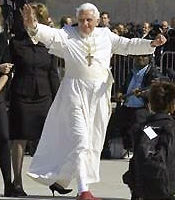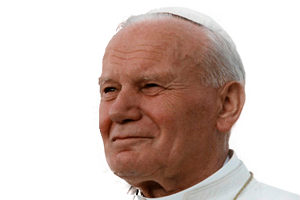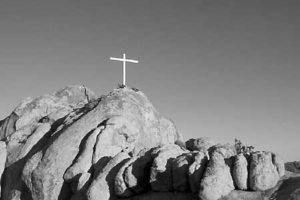CATHOLIC FAITHWATCH: “Saint Dominic Guzmán – Audience of Pope Benedict XVI, 3 February 2010” – vatican.va
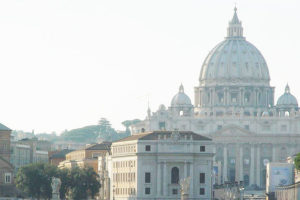
“… [A] Saint … who made a fundamental contribution to the renewal of the Church of his time: St Dominic, the Founder of the Order of Preachers, also known as Dominican Friars. … [born in Spain, ca. 1170], distinguished himself … for his interest in the study of Sacred Scripture and … love of the poor …. * * * [T]he Pope … asked Dominic to devote himself to preaching to the Albigensians, a heretical group which upheld a dualistic conception of reality …. Dominic … devoted the rest of his life to [the] mission of preaching the Good News. … This great Saint reminds us that in the heart of the Church a missionary fire must always burn. … a constant incentive to make the first proclamation of the Gospel and, wherever necessary, a new evangelization. Christ, in fact, is the most precious good that the men and women of every time and every place have the right to know and love! … [With] the Order of Preachers …. Dominic … used the ancient Rule of St Augustine, adapting it to the needs of apostolic life that led him and his companions to preach as they traveled from one place to another but then returning to their own convents and places of study, to prayer and community life. Dominic wanted to give special importance to two values he deemed indispensable for the success of the evangelizing mission: community life in poverty and study. First of all Dominic and the Friars Preachers presented themselves as mendicants … without vast estates …. Secondly … Dominic wanted his followers to acquire a sound theological training [including academic study] …. Dominic, who wished to found a religious Order of theologian-preachers, reminds us that theology has a spiritual and pastoral dimension that enriches the soul and life. … find[ing] profound ‘inner joy’ in contemplating the beauty of the truth that comes from God, a truth … ever timely and ever alive. … a pastoral yearning in the contemplative study of this truth because of the need to communicate to others the fruit of one’s own contemplation. * * * Marian devotion … he fostered tenderly …. his spiritual sons … in the history of the Church, have had the great merit of disseminating the prayer of the Holy Rosary … rich in Gospel values: a true school of faith and piety. … Dominic … believed unquestioningly in the value of prayers of intercession for the success of the apostolic work. …. Dear brothers and sisters, may the life of Dominic de Guzmán spur us all to be fervent in prayer, courageous in living out our faith and deeply in love with Jesus Christ. Through his intercession, let us ask God always to enrich the Church with authentic preachers of the Gospel. …”
Click here for: “Saint Dominic Guzmán – Audience of Pope Benedict XVI, 3 February 2010” – vatican.va
[featured images are file photos]
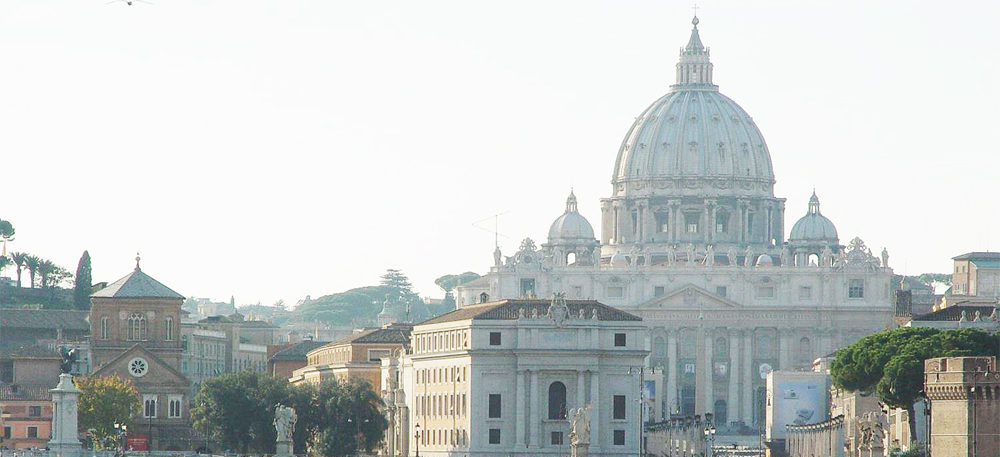

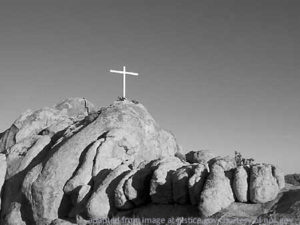 Divine Office or the Liturgy of the Hours] (43, 3). However, Benedict states that in the first place prayer is an act of listening (Prol. 9-11), which must then be expressed in action. “The Lord is waiting every day for us to respond to his holy admonitions by our deeds” (Prol. 35). Thus, the monk’s life becomes a fruitful symbiosis between action and contemplation, “so that God may be glorified in all things” (57, 9). In contrast with a facile and egocentric self-fulfilment, today often exalted, the first and indispensable commitment of a disciple of St Benedict is the sincere search for God (58, 7) on the path mapped out by the humble and obedient Christ (5, 13), whose love he must put before all else (4, 21; 72, 11), and in this way, in the service of the other, he becomes a man of service and peace. In the exercise of obedience practised by faith inspired by love (5, 2), the monk achieves humility (5, 1), to which the Rule dedicates an entire chapter (7). In this way, man conforms ever more to Christ and attains true self-fulfilment as a creature in the image and likeness of God. …”
Divine Office or the Liturgy of the Hours] (43, 3). However, Benedict states that in the first place prayer is an act of listening (Prol. 9-11), which must then be expressed in action. “The Lord is waiting every day for us to respond to his holy admonitions by our deeds” (Prol. 35). Thus, the monk’s life becomes a fruitful symbiosis between action and contemplation, “so that God may be glorified in all things” (57, 9). In contrast with a facile and egocentric self-fulfilment, today often exalted, the first and indispensable commitment of a disciple of St Benedict is the sincere search for God (58, 7) on the path mapped out by the humble and obedient Christ (5, 13), whose love he must put before all else (4, 21; 72, 11), and in this way, in the service of the other, he becomes a man of service and peace. In the exercise of obedience practised by faith inspired by love (5, 2), the monk achieves humility (5, 1), to which the Rule dedicates an entire chapter (7). In this way, man conforms ever more to Christ and attains true self-fulfilment as a creature in the image and likeness of God. …”

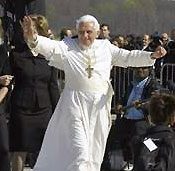 VATICAN CITY, 10 FEB 2010 (VIS) – Benedict XVI dedicated his catechesis during this morning’s general audience to St. Anthony of Padua, “one of the most popular saints of the Catholic Church.”
VATICAN CITY, 10 FEB 2010 (VIS) – Benedict XVI dedicated his catechesis during this morning’s general audience to St. Anthony of Padua, “one of the most popular saints of the Catholic Church.”